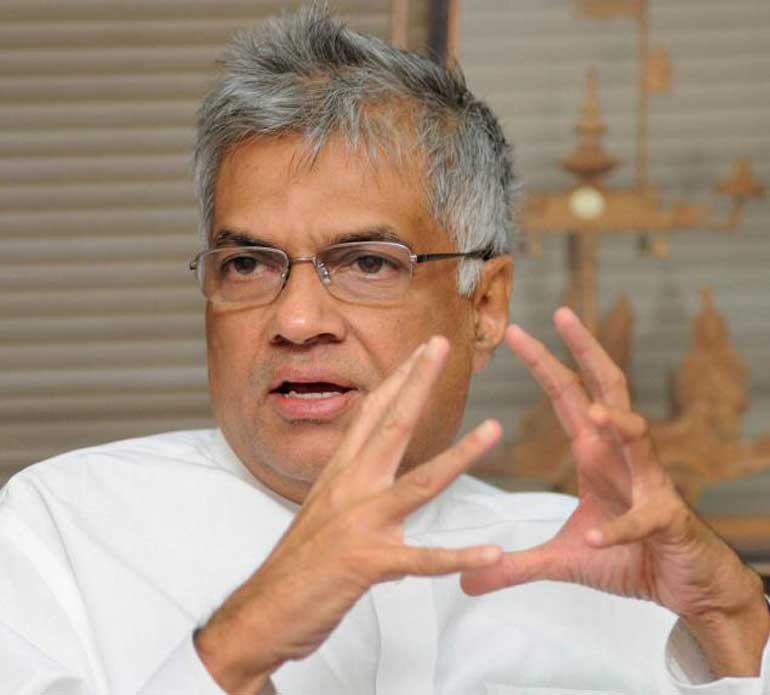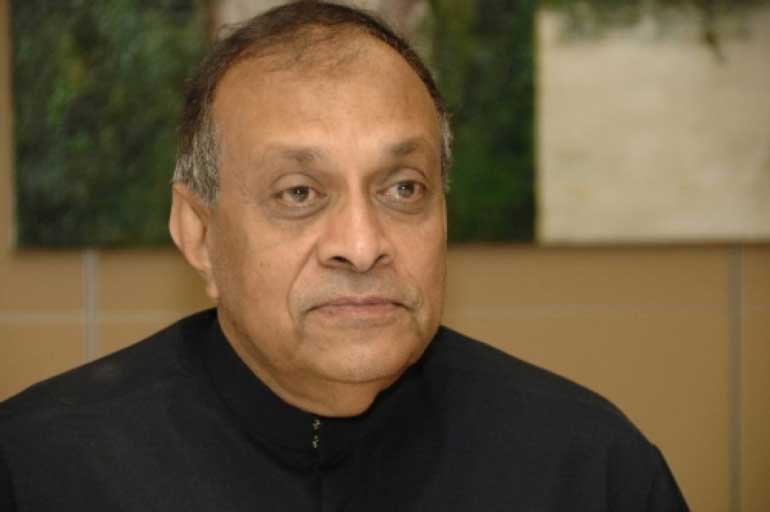Tuesday Feb 17, 2026
Tuesday Feb 17, 2026
Thursday, 3 September 2015 00:00 - - {{hitsCtrl.values.hits}}

Prime Minister Ranil Wickremesinghe

Speaker Karu Jayasuriya
By Ashwin Hemmathagama
Our Lobby Correspondent
Tough decisions will likely be made by Parliament today when Prime Minister Ranil Wickremesinghe seeks approval from members to appoint a large Cabinet, possibly composed of 48 Cabinet ministers and 45 non-Cabinet ministers including State ministers. The House will also see the appointment of an Opposition Leader after days of political wrangling.
According to Article 46 (1) of the 19th Amendment, the total number of ministers of the Cabinet should not exceed 30 and the non-Cabinet must be kept at less than 40.
During the last Government, which was dissolved on 24 July, the Cabinet had 39 members including the portfolios held by President and the Prime Minister, 14 State ministers, and 22 deputy ministers.
However, during President Mahinda Rajapaksa’s tenure, Sri Lanka had the dubious honour of being entering into the Guinness Book of World Records in November 2005 for having 52 Cabinet ministers.
This week President Maithripala Sirisena allowed Opposition parties to decide on the leader with the announcement to be made by Speaker Karu Jayasuriya. His party, the Sri Lanka Freedom Party (SLFP), along with smaller parties, had rejected the Tamil National Alliance (TNA) claim to appoint its Leader as head of the Opposition.
Even though the Constitution and the Standing Orders are silent about the process to followin identifying the Leader of the Opposition, tradition is to offer the post to the political party with the second highest number of seats in the Parliament during the current term.
However, with the foundation fora National Government in place and the possibilities of entering into a MoU by and between the United National Party (UNP) and the United People’s Freedom Alliance (UPFA), the technicalities prevent recognising a member of the UPFA as the Leader of the Opposition.
The affidavits and letters with signatures supporting a particular MP received at Speaker office lack legal bearing, according to Deputy Secretary Generalof Parliament Neil Iddawela.
“Technically there is no formal appointment as Opposition Leader in the Parliament. Traditionis for the Speaker to recognise a member, ideally the Parliamentary Group Leader,from the party or the group with second highest number of seats in the House,” confirmed Deputy Secretary General Iddawela.
If the UPFA takes part in a National Government,it will lose the possibility of getting one of its members to be the Leader of the Opposition in Parliament. The UNP holds 106 seats and the UPFA 95 seats in the current Parliament.
Taking the advantage of this peculiar political situation, the Illankai Tamil ArasuKadchi(ITAK) Parliamentary group met on 1 September inside the Parliament complex and has decided to requestthe Speaker to consider recognising veteran politician RajavarothiamSampanthan as the Opposition Leader.
Meanwhile, UPFA Kalutara District MP Kumara Welgama claims he is the most suitable to be the Opposition Leader, claiming to have the support of 55 UPFA signatories. Unless MP Welgama and his supporters identify themselves by standing out from UPFA as an independent group,he will have no chance of becoming the next Opposition Leader.
However, the Speaker will have to take a call today before the possibility of Parliament being adjourned till 22September.
Following the 1978 Constitution, the first Parliament met on 4August 1977 with Tamil United Liberation Front MP AppapillaiAmirthalingamrecognised as Opposition Leader. Late Amirthalingamvacated his seat on 24October 1983 in terms of Article 66(f) of the Constitution by reason of his absences from the sittings of Parliament for a continuous period of three months without leave of Parliament and when he vacated his seat he ceased to be Leader of the Opposition.
Moving forward, the Sri Lanka Freedom Party (SLFP) lawmaker representing the Maskeliya seat, late Anura Bandaranaike, was appointed to the office of Opposition Leader on 8 November 1983 and he was in office till 20 December 1988. Bandaranaike was succeeded by his mother SLFP MP– Gampaha, late Sirima R.D. Bandaranaike (second Parliament – 9March 1989 till 24June 1994).
UNP MP – Kandylate Gamini Dissanayake became the Opposition leader of the third Parliament for a brief period from 25August 1994-24October 1994. With the assassination of Dissanayake,UNP MP – ColomboRanil Wickremesinghetook the office on 28 October 1994. He was the Leader of the Opposition till 10 October 2000. The fourth Parliament commenced on 18 October 2000 and lasted till 10October 2001, in which MP Wickremesinghe was the Opposition Leader again.
Both MP RatnasiriWickremanayake and MP Mahinda Rajapaksa held the position of Opposition Leader in the fifth Parliament from 19December 2001 till 7February 2004.
The sixth Parliament of Sri Lanka met on 22April 2004 recognising MP Ranil Wickremesinghe who held office till 9February 2010. In the seventh Parliament, MP Wickremesinghe was the Opposition Leader from 22April 2010 till 9January 2015 before UPFA Badulla District MP NimalSiripala de Silva was recognised by Speaker ChamalRajapaksa.